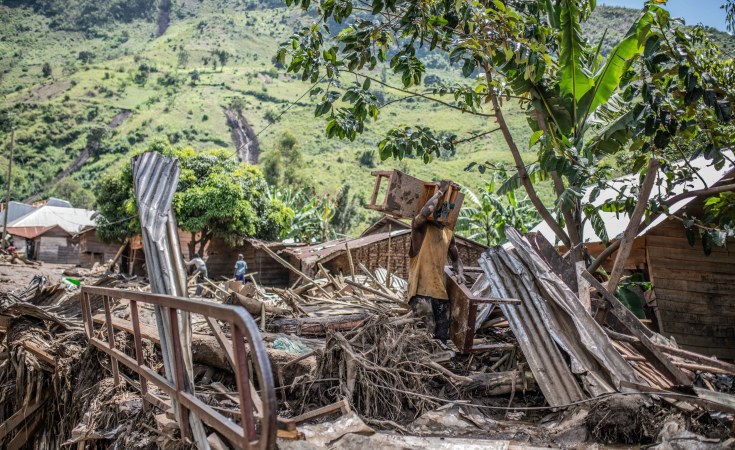Floods hit villages of the eastern Kalehe territory earlier this week, causing rivers to overflow. Villages were submerged, with landslides causing destruction.
Floods hit the southeast of the Democratic Republic of Congo this week, killing some 400 and leaving villages submerged.
Heavy rainfall struck the south-eastern Kalehe territory on Thursday, causing rivers to overflow and creating landslides.
At least 401 people have so far died as a result of the floods, provincial governor Theo Ngwabidje Kasi told the Reuters news agency on Monday.
Flooding hampers search and rescue efforts
Authorities have launched search and rescue efforts to assist those affected by the floods. Thousands have been reported missing.
"Since Thursday we've been finding bodies every minute and we are burying them," Thomas Bakenga, the administrator of Kalehe territory, told the French AFP news agency.
The death toll could rise further as the search continues. The destruction the flooding caused has affected aid efforts. Two main roads were impassable.
Valet Chebujongo, one of the youth activists helping with the rescue efforts, told the Associated Press news agency that over 170 victims were buried in four mass graves.
Day of national mourning
Congolese President Felix Tshisekedi declared Monday a day of national mourning. A team of ministers is scheduled to travel to the affected region to work out humanitarian aid.
United Nations Secretary General Antonio Guterres offered his condolences to the victims on Saturday.
"This is yet another illustration of accelerating climate change and its disastrous impact on countries that have done nothing to contribute to global warming," AFP quoted him as saying during a visit to Burundi.
The current rainy season is typical for Congo's South Kivu region. It is expected to last until the end of the month.
The flood-hit South Kivu in the broader Great Lakes region in eastern DRC is also only in partial government control, with several insurgent groups operating in the area for decades and with one militia, the M23, making considerable gains in the past 18 months or so.
rmt/msh (AFP, AP, dpa, Reuters)


